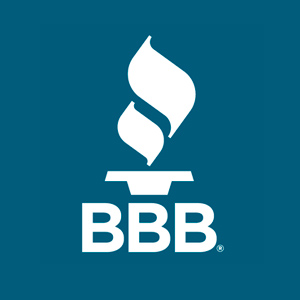Originally posted on law360.com at https://www.law360.com/access-to-justice/articles/1679076?nl_pk=25631f03-1e43-47e7-98c6-bc22f8ae6869&utm_source=newsletter&utm_medium=email&utm_campaign=access-to-justice&utm_content=2023-05-20&nlsidx=0&nlaidx=0
Anna Roden was facing nearly $16,000 in credit card bills in early 2022 when she signed up with a law firm called Litigation Practice Group that promised to challenge the validity of her debts and improve her credit score. In exchange, she agreed to pay the firm $330 per month. But early this year, the 24-year-old Minnesota college student realized something had gone very wrong.
“YOU ARE BEING SUED,” said the bold words on the notice that arrived at her home. She was shocked to see one of her creditors, Synchrony Bank, was coming after her. She would have to pay hundreds of dollars extra to settle the debt.

Anna Roden signed up with Litigation Practice Group in January 2022, paying the firm thousands of dollars only to wind up being sued by one of her creditors for non-payment. (Courtesy of Anna Roden)Her experience is an unfortunately common one for consumers in the larger debt resolution or credit repair industry. An entire universe of marketing companies and law firms urge vulnerable, legally unsophisticated debtors to pay big money for services that consumer advocates say have little to no real value.
“It’s a scummy, scammy business model, targeting people who are desperately trying to fix their debt, fix their credit,” said Ira Rheingold, executive director of the National Association of Consumer Advocates, an organization of lawyers who represent consumers.
The case of the California-based Litigation Practice Group serves as an extreme example of the broader problems within this industry. The Orange County firm is allegedly run by a disbarred lawyer, Tony Diab, and in recent months it failed in a spectacular fashion that has affected at least 50,000 people across the U.S.
Diab had previously denied running the law firm, telling Law360 in a January interview that another attorney, Daniel March, was in control. “This notion that he’s just a figurehead or something like that is absurd,” Diab said at the time.
But in a second interview with Law360 on Thursday evening, Diab reversed course. He acknowledged that in 2019, after losing his license to practice law in California and Nevada amid allegations of forgery and stealing $375,000 from clients, he created Litigation Practice Group.
“The actual practice of law, I didn’t manage, but pretty much everything else I did, including hiring a lot of the lawyers that wound up staffing LPG,” Diab said.

Anna Roden received notice that she was being sued by one of her creditors about a year after signing up with Litigation Practice Group. (Courtesy of Anna Roden)
Diab said he controlled the firm’s business operations, including multiple call centers, mailing centers and relations with dozens of advertising firms and investors. He said he worked to keep his own involvement secret from banks and other institutions.
“Because of my background, we decided it wasn’t good to see that name on the books or on the bank account,” he said.
Diab also said the firm was bigger than previously reported. Though the 50,000-client figure has been widely cited in lawsuits against the firm, Diab told Law360 the number of clients peaked at 67,000 early this year.
He argued that the now-bankrupt firm provided a useful service to debtors by pushing back against potentially invalid debts. He said it didn’t promise a magical cure for debt problems.

Tony Diab is a disbarred lawyer who ran business operations at the California-based debt resolution firm Litigation Practice Group. Consumers across the country have filed lawsuits and complaints that the now-bankrupt law firm scammed them and made their credit worse. (Courtesy of Tony Diab)”Maybe we succeeded, maybe we failed, but we tried to do debt in an ethical way where we made it clear that we’re going to try,” he said. “We may succeed, and we may fail, but you’re going to be much better off having a lawyer than not.”
Anna Roden doesn’t see it that way.
A few weeks after she was sued, the law firm stopped responding to her emails, and she couldn’t get anyone on the phone. After looking the firm up on the Better Business Bureau website, she realized she wasn’t alone: Hundreds of people had filed complaints. They said the firm had stopped responding to them, too.
Many clients said they’d been sued, that the firm had switched them to other law firms without their consent, and in many cases they’d been double-charged or triple-charged on their monthly payments to Litigation Practice Group.
She also discovered that, while many of the documents she had received from the firm had been signed by Daniel March, who is listed as the firm’s managing shareholder, lawsuits filed against Litigation Practice Group alleged the person who really controlled the firm was Diab.
Roden was appalled.
“I wish I also would have known this before deciding to go with this company,” she wrote on Facebook on March 24. “I was wondering, if this man is disbarred from practicing law, how is he allowed to run a law firm?”
Her Facebook message quickly drew responses from other law firm clients from across the country, including other people who had been sued by creditors.
Roden, who recently started work as a paralegal and plans to become a lawyer, created a Facebook message group called “Taking Down LPG.” In the coming weeks, the group grew to about 30 members who shared messages, built camaraderie and worked together to plan their next moves.
Then a former employee gave the group Diab’s cell phone number. Group members called Diab directly and demanded refunds. In response, Diab mailed several of them mysterious checks, drawn on accounts from companies they had never heard of.
Litigation Practice Group declared bankruptcy on March 20, claiming in a filing around the same time that it had only $4,500 in a checking account.
It was a stunning turn for a firm that, with tens of thousands of people making monthly payments ranging from $200 or less to more than $2,000, had been on the receiving end of a staggering amount of money in recent years.In an April court filing, the firm claimed to have earned revenue of $97 million in 2021, $155 million in 2022, and $30 million so far in 2023.
And it’s not just former clients who are coming after the firm. Investors who say they poured tens of millions of dollars into LPG to finance its aggressive recruitment of troubled debtors are demanding their money back — at least $147.4 million — in lawsuits from California to New York.
Some of the leading investors accuse the firm’s leadership of deliberately scuttling the firm, transferring away its assets and stealing millions of dollars. At least one investment company has openly called for federal prosecutors to investigate the law firm’s leadership.
Diab said the firm got into financial trouble early this year when two outside companies stopped processing payments. He said the firm missed payroll and quickly fell apart.
He said the investors are now discussing breach of contract claims as though they were crimes.
“I’m not aware of any potential federal law violations. I certainly don’t believe that I’ve engaged in any or that [Daniel March has] engaged in any.”
March didn’t respond to requests for comment. An attorney handling the firm’s bankruptcy, Joon Khang, didn’t respond to requests for comment.
The large-scale fraud allegations against Litigation Practice Group are unusual — but no matter which debt resolution or credit repair company is involved, most debtors shouldn’t sign up, experts say.
Most debtors would be far better off either declaring bankruptcy or negotiating one-on-one with credit card companies and credit reporting agencies, these experts say, because credit repair companies and similar firms often make people’s debt problems worse.
The credit repair industry has abused consumers for decades. Congress passed the Credit Repair Organizations Act in 1996 to rein in the worst practices. Regulators have cracked down on some firms.
Are you a client, current or former employee or investor in Litigation Practice Group or another debt resolution or credit repair company? Law360 would like to hear from you about your experience. You can email [email protected] or reporter Daniel Connolly.But some companies have continued to offend — and because investors are willing to bankroll these companies’ heavy marketing to bring in more and more clients, troubled debtors are blanketed with phone calls, postcards and other advertising messages promising help.
The data company IBISWorld estimated the 2022 revenue of the U.S. credit repair market at $4.4 billion.
As Rheingold puts it, “We live in a world with lots of people who are in debt.”
One of them is Anna Roden.
Anna’s Story
Anna Roden, a student at a two-year college near St. Paul, moved out of her parents’ home when she was 17.
Young, and inexperienced at managing her money, she accrued nearly $16,000 in credit card debt over the next few years, plus student loans, a car loan and medical bills on top of that. Her $21.17 hourly wage from her job at a vaccine clinic wasn’t enough, and she was already enrolled in a debt program with another law firm.
Then a telemarketer called and urged her to sign up with LPG.
“And he was telling me about, ‘Litigation Practice Group is better, and they’re faster, and they work on removing the debts from your credit report. So your credit report will improve.'”
She signed up in January 2022. As she made her payments, she could log into an online portal and read the letters that the firm had sent on her behalf to credit card companies and credit agencies, demanding the companies provide documents to validate their claims against Roden.
Acting in accordance with the instructions she said she got from the firm, she stopped making payments on her debts.
The legal services agreement she signed with LPG, however, included some contradictory language: “By signing this agreement, you acknowledge that LPG has not instructed you to breach any contract, fail to make any required payment, or fail to perform any obligation you have lawfully incurred.”
If LPG wanted Roden to pay her creditors, it wasn’t emphasizing that instruction.
As recently as November, Litigation Practice Group sent her an email assuring her that the firm was corresponding with credit bureaus “to clear invalid debts and derogatory marks” from her credit report.
Clients interviewed by Law360, including Roden, believed at least part of the money they were paying the firm could go toward paying off their debts.
It is a business model that shysters – scam artists – will go to because, from my many years of consumer law, when people are desperate or need help, you know, a lot of times the vultures come out.
IRA RHEINGOLD
National Association Of Consumer Advocates
That wasn’t true.
In theory, at least, the clients’ monthly payments covered the cost of the firm’s legal services. The law firm’s demands for validation documents, meanwhile, were intended to force the credit card companies and credit reporting bureaus to acknowledge the debts weren’t legitimate.
This type of debt validation process is unlikely to work for most people, said Andrew Pizor, senior attorney with the National Consumer Law Center.
He called this approach “even more bogus” than a similar service, debt settlement, in which a company negotiates with creditors to pay a reduced amount for the debt.
The Consumer Financial Protection Bureau says customers shouldn’t trust any company that claims to make bad information disappear from credit reports.
If the negative information is accurate and current, no one can make it go away, the agency says.
Diab told Law360 on Thursday that many other firms in the debt industry sell what he calls “snake oil.”
He summed up the false promises: “If you sign up for this program, your debt will magically go away, you’ll have no consequences. And for one low monthly payment, it’s as though you were never in debt to begin with.”
His firm, he said, didn’t make those false promises — but most of the thousands of new clients who signed up with Litigation Practice Group had been brought in by outside marketing companies.
“At one point, we had 80 different companies feeding us clients,” he said.
He said Litigation Practice Group tried to implement quality control measures for those marketers.
“But at the end of the day, we’re not the one on the phone making the sale. So we never know what is actually being said,” he said.
To protect against false promises, Diab said that when a new client was recruited to the firm, Litigation Practice Group representatives would explain the program to them again during an educational outreach phone call and a follow-up quality control call.
He described the content of the calls: “We’re not telling you not to pay your bills. And if you have the ability to continue to pay your bills, you’re going to be in a much better position. But if you can’t, we’re here to help. And these are the ways that will help you and then go through the functions.”
However, at least one highly questionable statement was still present on Litigation Practice Group’s own website as recently as Friday.
Rochelle Sparko is a credit repair expert with the Center for Responsible Lending. She reviewed Litigation Practice Group’s website and noticed a blog post that provided a general overview of debt relief programs. It said these programs lead to “ceasing of collection activity.”
“That’s just a lie,” Sparko said. “I mean, there is nothing that stops debt collection efforts other than a bankruptcy.”
Many clients of Litigation Practice Group would find this out firsthand when they got sued.
When Synchrony Bank sued Roden in January, she ended up signing a settlement and agreeing to a $311 monthly payment.
Physically and mentally, this has ruined me – ruined me. For someone that is so dishonest to steal from so many people.
LEE RUSSELL
Litigation Practice Group client
Because she would be making this payment, she told Litigation Practice Group to stop charging her for several months. The firm agreed. Then in February, the firm took out its $330 monthly payment anyway.
To resolve the double payment, she emailed every contact she had at Litigation Practice Group. For days, no one answered.
“So that was $650 that I had to shell out that month, and then had to get a payday loan because I have to eat,” she told Law360. “So with the interest on that being 700%, it’s like, that’s another rut that LPG has put me in that I’m still trying to get out of.”
Her own frustration prompted her to go public on Facebook on March 24. Other LPG clients contacted her in response.
One of them was Lee Russell, a 48-year-old single mother living near Knoxville, Tennessee, who works as a recruiter for a professional staffing agency.
Russell told Law360 in late March that, for weeks, Litigation Practice Group had been promising to refund the more than $6,000 she paid to the firm. It hadn’t happened — and like Roden, she’d been sued by one of her creditors.
“Physically and mentally, this has ruined me — ruined me,” Russell said, and began to cry. “For someone that is so dishonest to steal from so many people.”
Russell originally expressed anger at March, the official leader of the law firm whose name appeared on documents. But in the weeks since, she and others discovered the role allegedly played by Diab in the firm’s operations.
The Law Firm That’s Not Really A Law Firm
The key thing to understand about a law firm like Litigation Practice Group is that it isn’t really a law firm at all, said Rheingold.
“They’re marketing companies, period.”
He said these firms use automated systems and large numbers of paralegals and other assistants to send massive numbers of letters to creditors and to credit reporting agencies. The clients send the firm monthly payments. The only problem is that the process doesn’t generally yield results for clients, he said.
“They’ve automated a business that really requires much more individual care. So that’s a major piece of it,” he said. “They’re all about finding customers and getting business as opposed to actually solving people’s problems.”
So why are these businesses so successful?
There are two underlying, related problems, he said. The big three credit reporting bureaus — Experian, Equifax and TransUnion — all face long-standing complaints that their reports are full of errors. Meanwhile, credit scores increasingly matter for everything from finding jobs to renting apartments.
“And so there’s enormous demand for people to say, ‘Hey, wait, you know, I got denied this mortgage,’ or, ‘I can’t get a car, or I’ve been turned down for a job,’ or, ‘I can’t find an apartment.’ There’s an enormous demand for people who need to get their credit fixed.”
Unfortunately, some of the people looking to address that demand are bad actors.
“It is a business model that shysters — scam artists — will go to because, from my many years of consumer law, when people are desperate or need help, a lot of times the vultures come out,” he said. “And this business model is mostly a vulture business model. It’s not a model designed to help people. It’s designed to maximize their profits.”
Even as Litigation Practice Group falls apart, the Consumer Financial Protection Bureau is pursuing a $3.1 billion judgment against other credit repair businesses — Lexington Law and its related companies — over accusations they illegally took fees from more than four million customers.
Lexington Law argues the court hasn’t shown actual harm to customers, and it doesn’t deserve such a big penalty.
Businesses like Lexington Law frequently violate the federal Credit Repair Organizations Act, or CROA, Rheingold said. For instance, the CROA says any business that offers credit repair cannot charge up-front fees — it has to do the work first, and only then can it charge money, Rheingold said.
Bankruptcy
On March 20, Litigation Practice Group filed for Chapter 11 bankruptcy in California, bringing a temporary halt to the pile of consumer and investor lawsuits against the firm.
Investors have argued LPG’s bankruptcy claims are fake and part of a larger scheme to dodge creditors and legal liabilities.
Investors bristled when the law firm suggested that March should be compensated at $100,000 per month, or $1.2 million per year.

Daniel March serves as the nominal managing shareholder of Litigation Practice Group, though Tony Diab has admitted to playing a major role in running the firm’s day-to-day operations. (Litigation Practice Group)”In what alternative universe could March ever be justified any compensation, let alone $1.2 million, in this case?” the investment firm Debt Validation Fund said in an early May filing.
The investment firm argued that March’s work with the firm constituted criminal fraud and recommended that his actions and those of his colleagues be referred to federal prosecutors.
No criminal charges have been filed to date, but Anna Roden and others in her Facebook group for clients have been filing complaints to everyone they can think of, including state attorneys general and the FBI.
Roden found out Litigation Practice Group had transferred her case to another law firm without her consent — something it’s accused of doing to thousands of other clients. She saw it as a violation of her attorney-client privilege and privacy and told the other firm, called Phoenix Law, that she didn’t want them to represent her.
Diab confirmed to Law360 that Litigation Practice Group transferred tens of thousands of client files to other law firms. He said the clients had signed contracts which included language that allowed Litigation Practice Group to make these transfers.
The wholesale trading of clients underscores the argument that these law firms are little more than marketing companies, said Rheingold. He said real lawyers wouldn’t do this.
“You don’t trade clients — you don’t trade consumers — no!” he said, and laughed.
Meanwhile, Roden said her credit score has sunk to 530, so bad that she can’t qualify for a car loan, even as her current car is breaking down.
She said she’s learned from this experience.
“I learned a lot more about bankruptcy than I’ve ever wanted to know. I’ve learned that there are so many more people involved in this mess,” she said. “And I also learned to really do my research about who I’m going to be trusting with my money ever again.”
In the meantime, Roden and some other members of the “Taking Down LPG” Facebook group have communicated directly with Diab in recent weeks after a former firm employee gave the group his personal information.
Russell said she spoke with Diab and convinced him to send her a $6,681 refund check in early May. The check she received didn’t come from LPG, but another, apparently unrelated company called Prime Logix LLC.
There was some good news for Russell: The mysterious check cleared the bank. Roden also received a refund check for $3,960, and it cleared, too.
As of May 17, some other members of the “Taking Down LPG” group likewise reported contacting Diab and receiving checks from outside companies. Some were still waiting for the checks to clear.
But Russell still has questions about the whole process.
After Russell filed a complaint to the Tennessee attorney general’s office earlier this year, March responded to the office in writing, saying the firm couldn’t issue refund checks because of the bankruptcy proceedings.
So how could Diab cut her a refund check on his own?
“All of our checks had to come from the appointed trustee,” Russell told Law360 on May 9, adding that she’d flagged the issue with the authorities in Tennessee. “I let them know, ‘Well, this Tony Diab is writing checks. So where’s the money coming from?'”
She said she asked Diab if he would cover her costs related to the creditor’s lawsuit against her, and he said he would. Her conclusion: “He’s nervous. He knows he’s about to get in trouble.”
Diab acknowledged to Law360 that he has been interacting directly via his cellphone with 20 or 30 people who have demanded refunds and said Prime Logix is likely a firm that’s associated with Oakstone Law Group, one of the other law firms that’s taken cases.
“So the third party that’s collecting the revenue from the client and issuing the refund to the client isn’t touching LPG,” he said. “LPG has refund requests itself that are pending and sitting in the bankruptcy, and LPG can’t send those refund checks until the trustee approves it.”
Despite the continued uncertainty over what the future holds for LPG’s aggrieved clients, Russell expressed a kind of pride at the progress the tiny group on Facebook had managed to make.
“No attorney, no legal representation. A group of people came together and did this,” she said.
She realizes, though, that it’s a partial victory at best.
“There’s probably still like, probably a million people that don’t even know what to do.”
–Additional reporting by Brandon Lowrey, Jon Hill and Allison Grande. Editing by Dave Trumbore.
Have a story idea for Access to Justice? Reach us at [email protected].








